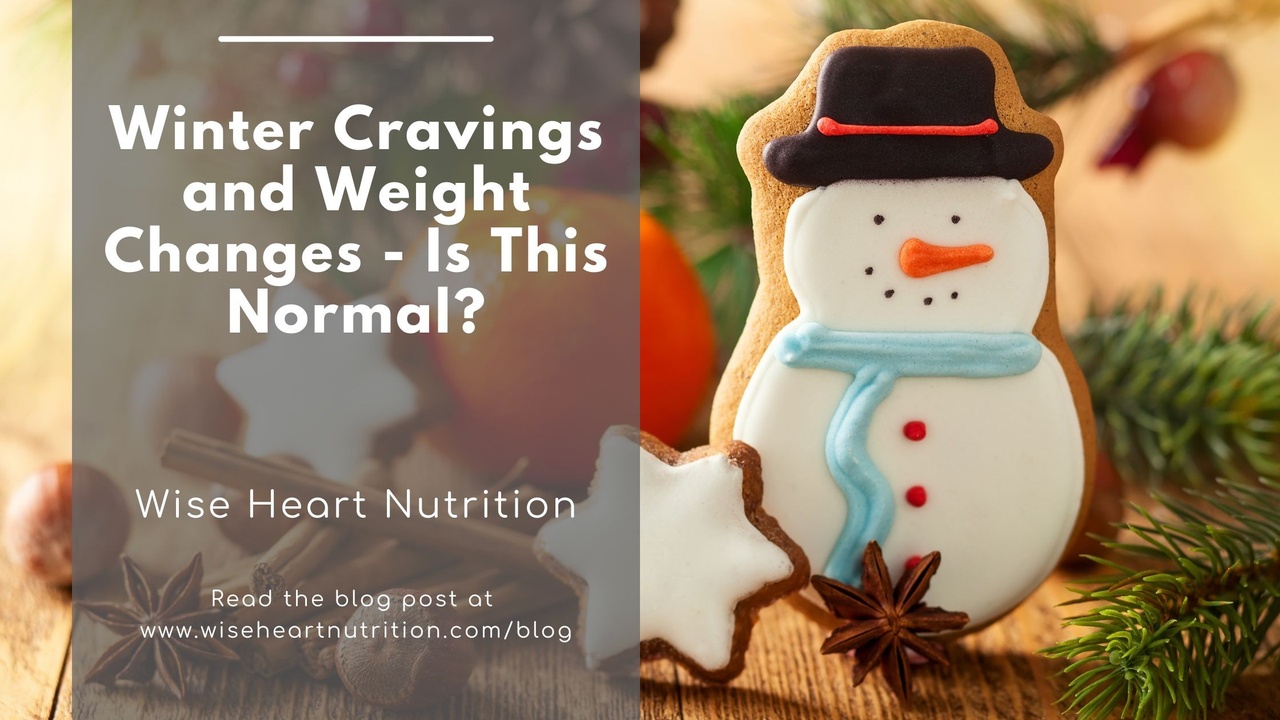Wise Heart Nutrition Blog:
All Things Anti-Diet, Intuitive Eating, and ADHD
What's a Dopamine Menu and How Can It Help Me with Motivation?

How often have I found myself in this trance? Aimlessly wandering through the house with a restless lack of direction, motivation, and a daunting sense of uncertainty about how to break free from this stalled out inertia. Luckily, I’ve been hit with a BRAIN BOLT that once again reminds me of the trusty tool that has rescued me time and time again from this restless state.
Out of the desk drawer and into the light, I unearthed my once-forgotten but still perfectly serviceable "dopamine menu". Its novel, yet familiar presence was just the guidance I needed to pinpoint activities that could infuse my brain with some MUCH-needed dopamine, providing the energetic *spark* necessary to tackle the day of pending tasks.
In the whirlwind of our fast-paced world, where distractions abound and demand after demand looms, creating and sustaining focus and motivation is a very real challenge, especially for folx with ADHD.
Cut to our shining “dopamine menu” - a dynamic visual tool craft...
What is Healthism? And What is True Health?

What is Health?
What is health, really? Is health itself a state of being? A set of behaviors? A performance? Is health a delicate balance between an individual, genetics, and environment? What we do know, is that if you ask 10 people what health means, you’ll get 10 different answers. There are multiple realms of health - physical, emotional, social, spiritual, mental - any of which may be more important to you than another. There may even be aspects of life that are more important to you than health, like personal goals or values. And that’s the point - whatever it means, health is personal!
What is Healthism?
Now, what is healthism? The term healthism was first coined by Richard Crawford in 1980. He defined healthism as the increased pervasiveness of health to all areas of life, and the promotion of health to a super-value that allows moral judgment. He argued that health was inherently political and due to healthism, the definition of health has become so strict that risk fac...
What is Body Trust? And 3 Steps to Start Building It!

The term “body trust” is showing up more and more on social media, in resources, and on the internet, but more often than not, we hear that folx are still unclear as to what body trust even means. We want to help explain not only what it is, but share 3 steps to start building body trust today, tomorrow, or whenever you are ready!
Body Trust is More than a Buzzword
Body Trust® is a trauma informed model / healing approach developed by Hilary Kinavey, MS, LPC and Dana Sturtevant, MS, RD (founders of The Center for Body Trust®). They define Body Trust® as “A radically different way to occupy and care for your body. It is a pathway to reclaim your body. Body Trust is paradigm shifting work that invites bravery and fierce body compassion.”
In action, body trust is a practice in which you counter conventional “wisdom” about food, body image, weight, and health in our culture, and instead look within your body for its own wisdom on what feels most aligned for you. It is a framework ba...
What About Fat Shaming People Who Aren’t Fat?

*The word fat in this article is used as a neutral descriptor of bodies, but acknowledges the intent behind fat shaming to be hurtful and discriminatory.*
Ahh, remember those fond and formative years of the early 2000s … record scratch. Remember being bombarded with media from all directions with content devoted to fat shaming? Remember waiting in the check-out line at the grocery store and seeing the magazines plastered with insults and calling out how much weight a celebrity had lost or gained? Looking back, though, a lot of those people that were constantly being publicly bullied for their weight … weren’t actually fat. We’ve established that body shaming is completely horrible, but what about fat shaming people who aren’t fat?
While it doesn’t compare to the harmful magnitude of fat shaming real fat bodies, body shaming those in smaller bodies is its own special brand of gaslighting that’s used as a method of societal control. It’s an insidious form of misogyny, and a seem...
Why and How to Make New Year's Resolutions that Aren't About Weight

Did you just see your tenth (or ten millionth) content piece about “new year, new me”? Let’s all say it together - ugh! It’s time for a new year celebration again, and with that comes all the diet industry ads and allll the pressure to make new year’s resolutions around health and body size (and just like every year, they come with that golden promise that “this time, you will make it work”!). Before you start your goal list (or don’t), can we invite you in for a little chat on why you should not make a new year’s resolution to lose weight?
Weight is not a behavior
Read that line again. Weight is not a behavior, and it’s not something you can directly control over the long term. Which means it’s not realistic to make a goal about controlling or changing weight. Research shows that there is little support for the notion that diets lead to lasting weight loss or health benefits. In fact, about 75% of weight and shape is determined by genetics, with much of the remaining percenta...
5 Tips to Improve Self-Esteem

Self-esteem can be a major area of confusion and heartache for many (ok, probably most). In order for our clients at Wise Heart Nutrition to truly experience progress in healing their relationship with food, we typically have to spend some time addressing self-esteem. First of all let’s clarify what self-esteem really is and why it’s important to our everyday lives. Then we’ll get to the good stuff - 5 steps to improve your self-esteem.
What exactly is self-esteem?
Self-esteem is your subjective sense of overall personal worth or value. The key word here is subjective - self-esteem may not be based on reality, but rather our perception. Similar to self-respect, it describes your level of confidence in your abilities and personal attributes.
Some sources that contribute to low self-esteem include:
- Living through negative or traumatic experiences
- Lacking access to positive support systems
- Engaging in or taking actions that don’t line up with our values
- Societal norms ...
Is it Normal for My Weight and Cravings to Change in Winter?

Daylight Saving Time has just ended (ugh), and the days are getting much shorter, much darker, and much colder. In the words of some famous show - winter is coming.
Have you ever noticed changes in your food cravings or shifts in your body weight with the seasons? Like, how a bowl of hot tomato soup and grilled cheese sounds way more appealing than watermelon and salad in the winter. Or how clothing might fit differently from summer to winter? Let’s explore why and how cravings and weight can fluctuate in the winter - and the big question, is that normal?
The general answer to that question is - yes, this is normal! We crave different foods, and our bodies may go through subtle (and even not so subtle) changes during the winter months. There are a few reasons for all of this, including (but not limited to) traditional seasonality, thermic response, and psychological shifts during this time of year.
Below, we break down these 3 explanations of how and why winter can im...
What Is Body Neutrality and How Can I Start Practicing It?

What If Body Positivity Isn't The Answer?
When you are first exploring what it would look like to not dislike your body, as media at large directs you to do, the body positivity movement can be met with rolled eyes and thoughts of “are you kidding me” and “that’s wayyy too hard”. And yeah, when starting from a place of hatred, disgust or dismissal of your body, it can seem an impossible task to ever reach a place of love, appreciation, and acceptance. Enter body neutrality.
While self love regarding our bodies is important, it’s not always attainable in our society where we are constantly flooded with messages about an “ideal body” that are rooted in white, colonial, and fatphobic systems. Here are some important reasons why body-positivity and body-love aren’t going to work for everyone:
- The mainstream body positivity movement isn’t actually inclusive of ALL bodies (The original creators of the movement - fat and POC women - have been noticeably overshadowed in the movement’...
Is Food Variety Important and Possible with a Neurodivergent Brain?

Are nutritional guidelines helpful for everyone?
Dietary variety (eating lots of different foods from all the different food groups) has long been considered a pillar of “good nutrition”. Blanket dietary recommendations like this are intended to support the greater population, but when these guidelines are solely focused on nutrients and physiological health, many groups of people get overlooked, left out, and placed in a disadvantaged position where health and wellness (when measured by whether or not a person is meeting a given recommendation) are essentially out of reach. And when these folx continue to chase after an impossible standard, other aspects of health (mental, emotional, relational, financial, etc.) suffer… and that isn’t really supportive of health at all.
When we talk about health, instead of trying to fit everyone into one box, we need to consider and understand what is REALISTIC, CONTEXTUAL, ACCESSIBLE, POSSIBLE, and SUSTAINABLE, and we need to recognize that...
